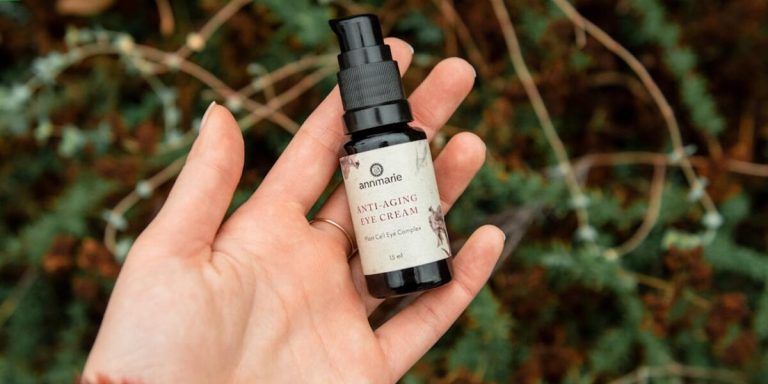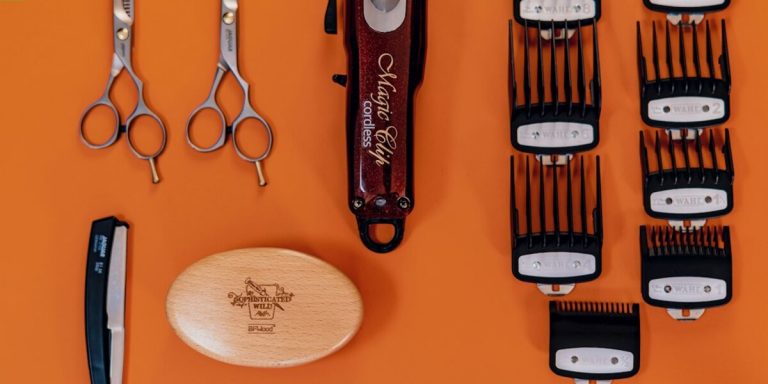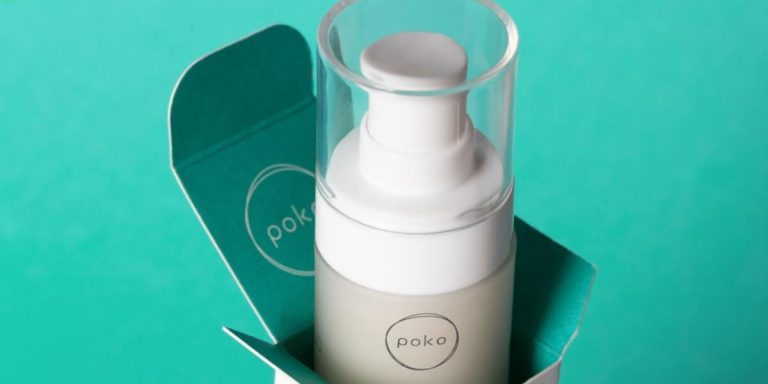Do Prenatal Vitamins Promote Hair Growth: A Scientific Perspective
Are you wondering, “Do prenatal vitamins promote hair growth?” Many have sought the answer to this question with an eagerness driven by hair growth struggles. Prenatal vitamins are often touted as a secret ingredient for lush and voluminous locks – but how much of that is fact-backed? This article aims to unravel this mystery through scientific evidence.
To address whether or not prenatal vitamins do indeed boost your mane’s thickness and length, it’s important first to understand what they contain. These supplements pack in numerous essential nutrients known for their positive impact on our overall health – including that of our tresses. But can these benefits specifically drive more significant hair growth?
Let’s dive deeper into the research around them.
Did you know?
Scientific research shows that prenatal vitamins, renowned for high biotin levels, can accelerate hair growth and improve overall hair health. However, their impact is not specifically targeted at non-pregnant women as a long-term solution to promote hair growth.
Unveiling the Truth: Do Prenatal Vitamins Enhance Hair Growth?
The relationship between prenatal vitamins and hair growth is a topic with much curiosity surrounding it. Prenatal vitamins are primarily designed to ensure the health of pregnant women and their babies, rich in vital nutrients like folic acid, iron, calcium and often biotin as well. Their role in fostering luxuriant locks comes from an indirect effect; providing essential body needs that may also contribute towards promoting healthy hair.
To unravel the truth about whether these supplements actually boost hair growth or not – yes they do but not without reason. Biotin addition plays a key role here because this ingredient specifically helps improve your body’s keratin infrastructure which directly influences hair quality.
Preliminary evidence suggests some users might benefit from prenatal vitamins. But expecting enhanced hair growth solely from these vitamins may be overly optimistic. Genetics and other conditions also determine hair growth rate and potential shedding, regardless of nutrient intake. So, maintain realistic expectations when adding ‘Hair Growth Vitamins‘ to your routine.
Understanding Prenatal Vitamins and Their Nutrient Profile
Prenatal vitamins are a popular choice among many, not only for their benefits during pregnancy but also for their potential to promote and enhance hair growth. These supplements usually have higher amounts of certain nutrients compared with standard multi-vitamins, making them an interesting subject in the field of hair care.
To start off, prenatal vitamins pack a hefty dose of folic acid—an essential B vitamin—that plays a significant role in cell regeneration. In terms of your locks, this translates into faster growing and healthier strands that both look and feel better than ever before.
Alongside folic acid is another star player: biotin. Touted as one of the most effective vitamins when it comes to promoting hair growth, biotin works by rebuilding keratin – the protein that makes up our tresses. This means potentially stronger hair which may lead to less shedding and breakages over time.
Iron too finds its place within these potent capsules—albeit generally at levels recommended for pregnant women—which can play an important part in preventing anaemia—a condition linked frequently with thinning or loss-of-hair issues.
Then there’s Vitamin D—a key nutrient often deficient in people who struggle with alopecia—areata type—is thought to aid follicle cycling; thus creating favourable conditions for new hairs budding through your scalp surface more regularly!
In essence though it’s clear why some individuals swear by prenatal supplementation even outside gestation periods.
Evaluating Scientific Evidence Behind Hair Growth Claims
There is no shortage of claims on the internet suggesting that prenatal vitamins can promote hair growth. However, it’s crucial to scrutinize scientific data before believing such assertions.
A study published in Dermatology Practical & Conceptual Journal elucidates how certain components found in prenatal vitamins like biotin and folic acid positively influence hair health. Biotin plays a vital role in strengthening keratin—the primary protein present in our hair strands—leading to an improvement in overall hair structure [1]. On the other hand, Folic Acid helps cells work and tissues grow—including your mane!
In another research conducted by Clinical Interventions In Aging (2018), pregnant women were observed with significant improvements made concerning their hair thickness after consistently taking these vitamin supplements during gestation [2]. This evidence supports the claim that there could be some truth about prenatal vitamins promoting better-quality tresses.
However, it’s worth mentioning that not all results are uniform for every person. While studies show positive outcomes regarding increased volume and improved texture among pregnant subjects consuming these multis; non-pregnant individuals may have different experiences as hormonal balance varies significantly between both states.
Moreover, experts advise caution when considering using high-dose multivitamins such as prenatals without pregnancy or specific nutritional deficiencies because they might contain iron levels exceeding recommended amounts which can lead to constipation or more severe health issues if taken unnecessarily long term [3].
The Role of Specific Nutrients in Prenatal Vitamins for Hair Health
The role of prenatal vitamins in promoting hair health and growth is often a topic of much discussion. These supplements, usually taken during pregnancy, are rich in essential nutrients that cater to the increased demands of mothers-to-be. However, their benefits transcend beyond just maternal health; they also play an important part in enhancing the condition and appearance of one’s locks.
One primary component found in prenatal vitamins is biotin, or vitamin B7. This water-soluble vitamin strengthens your tresses from within by fostering cell renewal and producing amino acids – building blocks for protein synthesis crucial for hair structure strength. When consumed regularly as part of these supplements, pregnant women may notice fuller manes with reduced thinning due to reinforced strands’ resilience against breakage and wear.
Furthermore, it’s not only about biotin! Prenatal vitamins are packed full with other beneficial substances like folic acid (B9). Folic acid plays a critical function at our genetic level- DNA creation which impacts all cells including those generating hair follicles– leading smoother transition phases between resting (Telogen) & active growth phase (Anagen), hence resulting long-term improved hair quality overall.
Conclusively seeing its nutrient-dense composition – It isn’t surprising that consuming prenatal vitamins even when you aren’t expecting can contribute significantly towards achieving healthier-looking lustrous hairs vibrant with life!
The Impact of Folic Acid on the Hair Growth Cycle
Folic acid, also known as folate or vitamin B9, plays a crucial role in the hair growth cycle. This nutrient is of paramount importance to cell division and DNA production which are integral elements for healthy hair growth.
Let’s dive deeper by examining how folic acid influences different stages of your coif’s life cycle.
Anagen Phase: The Anagen phase refers to the active period when hairs grow. Folate aids in both cellular turnover and red blood cell creation during this phase – thereby contributing positively towards prompter hair lengthening.In fact, deficiency in folic acid may disrupt this duration causing slower mane expansion.
Biotin, Vitamin A, and Other Key Ingredients: Benefits for Your Locks
Biotin, commonly known as Vitamin B7, plays a crucial role in promoting hair growth and strength. It works by helping your body convert nutrients into energy which is vital for good health of your hair follicles – the tiny structures that generate new strands of hair. When these follicles are healthy and properly nourished with biotin, they can produce stronger strands leading to less breakage.
Vitamin A is another key ingredient found in prenatal vitamins that contributes to excellent tresses. This vitamin helps skin glands make an oily substance called sebum which moisturizes the scalp and keeps them healthy. A well-moisturized scalp prevents dryness that often leads to dandruff or other scalpy issues causing hair loss.
Furthermore, Zinc also proves its worth when it comes to having luscious locks! Adequate intake of this nutrient via prenatal vitamins can enhance overall development & repair processes including those related to hairs.
Several studies have pointed out zinc deficiency as one common reason behind severe hair thinning problems meaning adequate amount zinc through diet or supplements could prevent such situations!
Iron should not be overlooked on our list too! Iron aids the production of red blood cells carrying oxygen needed for cell growth including those responsible for stimulating strong & lushious mane.
Remember though: Too much iron isn’t beneficial either so take care while self-prescribing any supplement.
Comparing Prenatal Supplements with Standard Hair Growth Formulas
Prenatal vitamins, typically revered for supporting healthy pregnancies, have also gained attention for their potential to promote hair growth. But how do they stack up against standard hair growth formulas? Both prenatal supplements and dedicated hair growth vitamins aim to nourish the body from within so that it can produce thicker, shinier strands.
At first glance, prenatal vitamins and hair supplements share similarities. Prenatal vitamins pack essential nutrients for healthy hair such as iron, folic acid, and biotin:
- Iron promotes good blood circulation that stimulates faster cell regeneration and improves follicle performance for stronger, healthier hair.
- Folic acid aids in tissue renewal to keep roots refreshed.
- Biotin enhances the keratin infrastructure, a critical protein in our hair structure.
Meanwhile, most specialized Hair Growth Vitamins focus exclusively on providing concentrated amounts of selected ingredients acknowledged by experts for boosting scalp health and encouraging new strand development thereby minimizing overall breakage rate as well as imparting much-needed luster into lifeless hairs such just like Vitamin A,C,E,B-7(Biotin), Zinc etc .
Breaking Down Ingredient Lists: What Sets Them Apart?
Prenatal vitamins and hair growth formulas are frequently compared thanks to their similar benefits for enhancing hair quality. However, it’s essential to understand the ingredient list disparity that sets them apart.
When we look at prenatal vitamins, they generally contain a higher concentration of nutrients like folic acid and iron. Folic acid is known not just for supporting rapid cell division during pregnancy but also assisting in healthy hair growth by supplying necessary proteins. Iron helps red blood cells carry oxygen throughout your body, which includes your scalp – contributing directly towards promoting healthier hair.
Another key element often found only within these dedicated supplements are antioxidants such as Vitamin E & C These power-packed components enhance collagen production while reducing oxidative stress so you benefit from stronger roots leading onto luscious locks!
Let’s consider Omega fatty acids too; predominantly featured across various Hair Growth Vitamins brands around 2023 but less commonly prominent within Prenatals’ composition charts . The omega-3s nourish follicles encouraging fuller volume whilst Omega-6 triggers robust new strands’ formation thereby culminating into denser manes.
Efficacy Assessment: Can You Expect Similar Results?
Prenatal supplements have courted attention over time and it’s not because of the reasons you might imagine. More than just a dietary supplement for pregnant women, these wonder pills often find themselves in vanity cabinets due to an unexpected side-benefit – thicker hair.
Indeed, many users report noticeable results after including prenatal vitamins into their diet regimen even when they’re not expecting. Let’s delve deeper into how this works.
Primarily designed with sustaining healthy pregnancies in mind, prenatal formulas house essential nutrients like iron and folic acid which also function admirably towards reinforcing our tresses from roots upwards! They contribute significantly towards boosting cell renewal needed for strong strands thereby causing minimal breakage; hence making them appear fuller.
While no concrete scientific evidence proves that prenatal supplements expedite hair growth services directly compared to regular Hair Growth Formulas or if there are additional benefits post-pregnancy is still under scrutiny by experts globally.
On the other hand focusing on Standard Hair Growth Formulas specifically engineered to fortify your follicles being crafted based on decades worth of profound research about human hirsuteness. Packed full with proven elements such as Biotin that bolsters thickness alongside Vitamin E known widely for recuperating damaged scalp conditions- each ingredient serves a purpose directed distinctly at improving overall texture consequently promoting viable regrowth long term.
Conclusion
So, “Do prenatal vitamins promote hair growth?” Absolutely! Drawing from our scientific exploration, it is clear that these vital supplements host a number of nutrients essential for luscious locks. Your mane can indeed benefit immensely from the nourishment offered by folic acid, biotin and other key ingredients prevalent in prenatal vitamins.
However, remember to approach all aspects of health holistically – diet alone cannot triumph over genetics or underlying conditions. Keep exploring our website for more scientifically backed articles on Hair Growth Vitamins – your trusted source when navigating through this hairy topic! Let’s embark on this journey to attain those shiny tresses you have always desired together.







